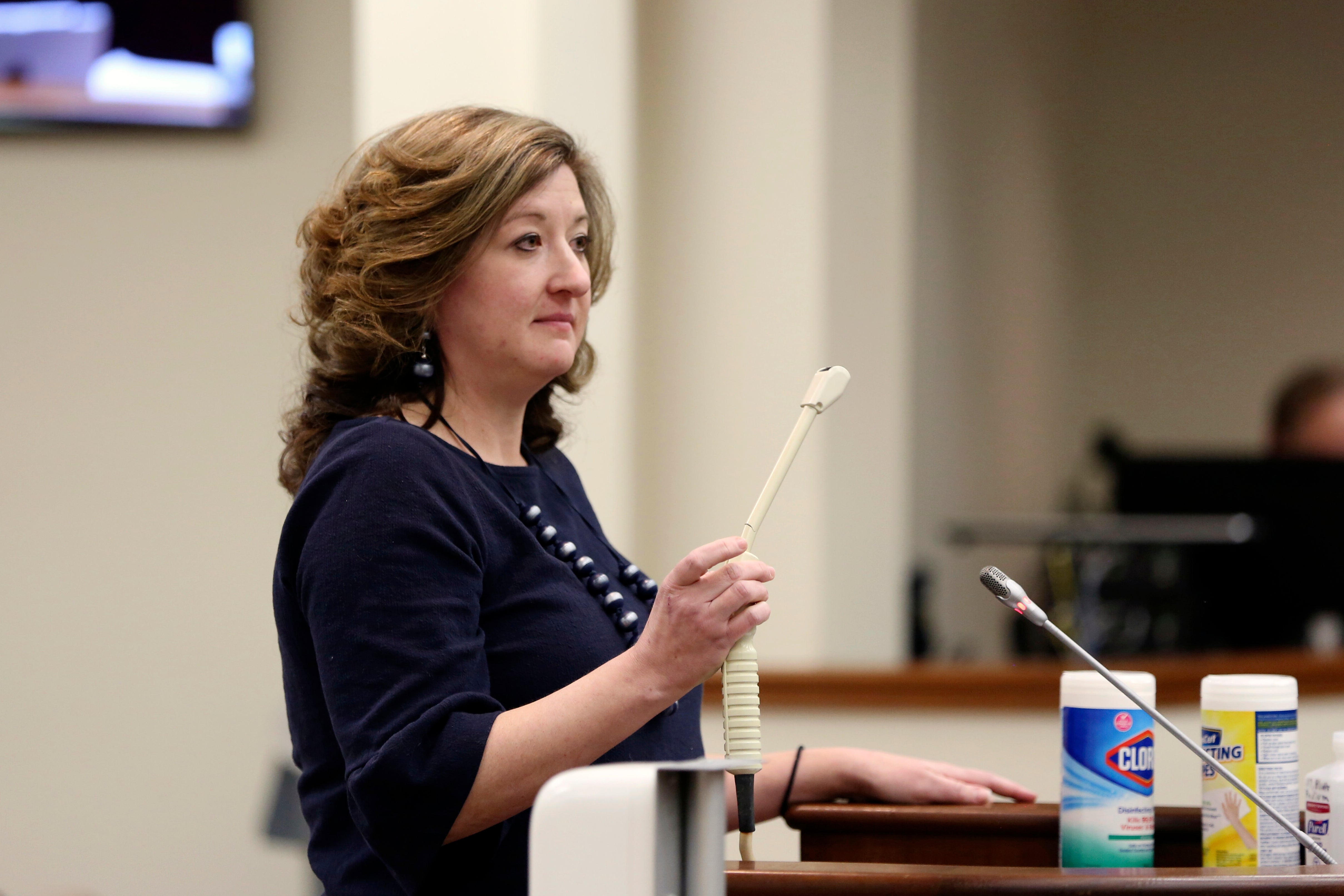Both sides get on final chance to talk about SC abortion ban
The public is getting a chance to testify before South Carolina lawmakers about a bill that would ban abortions once a fetal heartbeat is detected

Your support helps us to tell the story
From reproductive rights to climate change to Big Tech, The Independent is on the ground when the story is developing. Whether it's investigating the financials of Elon Musk's pro-Trump PAC or producing our latest documentary, 'The A Word', which shines a light on the American women fighting for reproductive rights, we know how important it is to parse out the facts from the messaging.
At such a critical moment in US history, we need reporters on the ground. Your donation allows us to keep sending journalists to speak to both sides of the story.
The Independent is trusted by Americans across the entire political spectrum. And unlike many other quality news outlets, we choose not to lock Americans out of our reporting and analysis with paywalls. We believe quality journalism should be available to everyone, paid for by those who can afford it.
Your support makes all the difference.After years of legislative wrangling over a bill that would ban almost all abortions in South Carolina, the public got what likely will be one final chance to speak for or against the ban.
Dozens of people testified both in person and online at Wednesday's House subcommittee hearing. The bill passed the Senate last month after years of setbacks.
South Carolina lawmakers have been holding public hearings for years on the “ South Carolina Fetal Heartbeat and Protection from Abortion Act. ”
It would require doctors to use an ultrasound to try to detect a fetal heartbeat if they think pregnant women are at least eight weeks along. If they find a heartbeat, and the pregnancy is not the result of rape or incest, they can’t perform the abortion unless the mother’s life is in danger. That can be as soon as six weeks after conception and before many women know they are pregnant.
Wednesday's meeting had familiar testimony — limited to three minutes per speaker — from all of those hearings.
There were pastors saying every life matters. There were women's rights groups saying the bill takes away control of women's bodies.
There were doctors. There were women who had abortions and regretted the decision and those who had them and asked lawmakers not to take away that choice from other women.
There were women with heartbreaking stories of choosing to end pregnancies when told the fetus couldn't survive outside the womb and adults who told tales of mothers who didn't want them but decided to take their pregnancies to term instead of having an abortion.
At the end of Wednesday's meeting, the subcommittee was expected to send the bill to the full Judiciary Committee, likely next week. That committee is expected to approve the bill and send it to the House floor. The full House passed the bill 70-31 last session.
Gov. Henry McMaster has promised to sign it immediately as South Carolina would join about a dozen other states that have passed similar or more strict abortion bans. All of them are awaiting court rulings with conservatives hoping one of them will lead the U.S. Supreme Court to overturn its 1973 ruling that keeps states from excessive restrictions on abortions.
Abortion opponents have pushed the South Carolina bill in some form for more than a decade. It would pass the House easily, then fail each time after hitting a procedural hurdle in the Senate. But Republicans gained three senators in November and the Senate finally passed the bill in January.
Some conservatives aren't happy the bill included the rape and incest exceptions and it has passed the House before without that change. At least two Republicans senators said they couldn't support it without those exceptions.
If the House removes the exceptions or makes any other changes, the Senate would have to pass the bill again. Holly Gatling who leads South Carolina Citizens for Life which wants to outlaw all abortions, asked lawmakers at least three times to pass the bill without changes,
Lacey Layne appeared testified again Wednesday, telling the story how an ultrasound found the boy she and her husband decided to name Evan has his brain growing outside the skull. She said made the heartbreaking decision to have an abortion just before the 20-week deadline under current state law.
She has told the story several times and only strayed from her written testimony at the end of her three minutes.
“I shouldn’t have to keep sharing my personal experience with strangers in hopes you will finally care," Layne said.
A few minutes later pastor Randy Goff came before lawmakers, telling a story he has told many times in Columbia of how his wife was pregnant with twins named Isaac and Abigail. He spoke of the joy and delight he felt when he heard their heartbeats and would talk to his wife's belly.
Isaac died in the womb after a doctor suggested they wait a day to check on a possible problem with the pregnancy, Goff said.
“We need to do everything we can to protect an unborn child," Goff said.
___
Follow Jeffrey Collins on Twitter at https://twitter.com/JSCollinsAP.